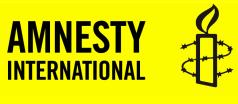 A new report from Amnesty International has found that some European Muslims are regularly denied employment and educational opportunities because of widespread cultural and religious stereotypes that lead to discrimination against them.
A new report from Amnesty International has found that some European Muslims are regularly denied employment and educational opportunities because of widespread cultural and religious stereotypes that lead to discrimination against them.
The report, titled “Choice and Prejudice: Discrimination Against Muslims in Europe“, examines the lives of Muslims in Switzerland, France, Belgium, Spain, and the Netherlands. It found that individuals who wear specific forms of dress, like a head scarf, or other symbols associated with Islam, do worse with jobs and schooling because of prejudicial attitudes and legal impunity in these European states.
The report documents several cases of discrimination and takes issue with the legal environments that allow such practices to go unchecked. It found problems caused by a lack of laws, such as in Switzerland, as well as laws that Amnesty International says help institutionalize stereotypes, like bans on certain forms of Islamic dress.
The European Union’s Employment Framework Directive, which applies to member states, holds that different treatment on the grounds of religion or belief amounts to discrimination. Domestic legislation in Belgium, France, the Netherlands, and Spain mirrors that stance.
But Marco Perolini, Amnesty’s expert on discrimination and the report’s author, says the rights group found lax implementation of those laws and some places where no laws exist at all.
“What we found is that in some countries, such as France, the Netherlands, and Belgium, this existing legislation is not appropriately implemented, and this is actually of course a concern,” Perolini says.
“On the other hand, there are other countries – specifically, Switzerland, which is not a member of the European Union – where there is not comprehensive antidiscrimination legislation,” he adds. “In Switzerland, there is no specific legislation prohibiting discrimination on the ground of religion or belief in the area of employment.”
Amnesty says employers are allowed to discriminate on the basis that religious or cultural symbols could upset their clients or contradict their company’s corporate image. The report profiles Amel, from Paris, an experienced social worker who wears a head scarf and has had difficulty finding work.
In an interview to become a counselor to victims of domestic violence, the employer told her that she couldn’t wear her head scarf because, “How would you be able to convince a female Muslim victim of domestic violence that she needs to remove her head scarf in order to find employment and be financially independent?”
That attitude has been reinforced by the debate in several European countries – Austria, Belgium, Bosnia-Herzegovina, Denmark, France, Italy, the Netherlands, Spain, Switzerland, and the United Kingdom – over whether to prohibit full-face veils in public. France and Belgium have already done so.
Perolini says such laws “violate the right to freedom of expression and the right to freedom of religion or belief for Muslims in Europe”. “What we are putting into question is the compliance of general bans with international human rights standards,” he adds.
The report also looks at European public schools and concluded that here, too, laws against Islamic dress are hurting Muslims. Girls denied the right to wear the head scarf will leave school rather than comply with the ban, the report suggests.
Amnesty International is calling on European governments to more strongly enforce existing laws and find ways to counter negative Muslim stereotypes and prevailing attitudes – what Perolini describes as “a groundswell of opinion in many European countries that Islam is all right and Muslims are OK so long as they are not too visible.”
See also Amnesty International news report, 23 April 2012
Update: And Nafeez Mosaddeq Ahmed, “Anti-Muslim discrimination and the rise of the extreme right in Europe”, Public Service, 24 April 2012
